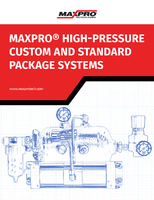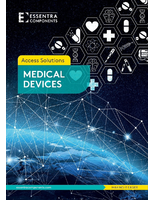Biotech Company Relies on Micro-sample Viscometer to Measure Polymer Solutions
Share:
Cambridge Viscosity recently sold a VISCOLab 5000 laboratory viscometer to a California-based biotechnology company specializing in protein micro-RNA therapeutic analysis that is developing medicines targeting Hepatitis C, cardiovascular and other human diseases. The company is using the micro-sample viscometer to accurately measure polymer solutions to screen out oligonucleotides that have high viscosity when dissolved in water or saline solutions.
The Cambridge system was selected for its small-75 micro-liters-sample requirement, as well as its accuracy and repeatability. The development of new classes of high-impact protein medicines, based on microRNA, rely heavily on the ability to deliver these medicines through very fine-gauge needles. If the concentration of oligonucleotides in either the water or saline is too high (above 200 mg/mL), the typical dosing solutions for therapeutic applications, the polymer will not flow in the fine-gauge needles. MicroRNA samples are scarce, take a long time to develop and are very expensive, making the micro-sample viscometer an ideal solution as it requires a very small sample size.
Cambridge Regional Sales Manager William Small says: "Cambridge micro-sample viscometers are widely used in the pharmaceutical and biotechnical markets to measure protein samples where very small amounts of fluid are available for testing, but the value of accurate information is high."
About Cambridge Viscosity
Cambridge Viscosity, a leader in advanced laboratory and production viscometer systems, designs automated viscometers used worldwide by pharmaceutical and biotechnology organizations to ensure accurate viscosity in both their lab and process operations. Cambridge's worldwide reach is important for providing application engineering support and service wherever and whenever needed.
Cambridge Viscosity's sensors and viscometer systems conform to ASTM, DIN, JIS and ISO standards, with a range of models designed to meet specific industry and application needs. Certifications include ATEX Class 1, Div. 1, CE, FM and NEMA. CSA certification is also available upon request.
For additional information visit: www.cambridgeviscosity.com




